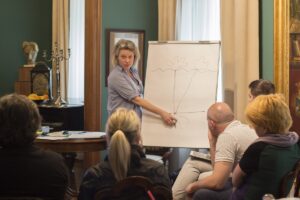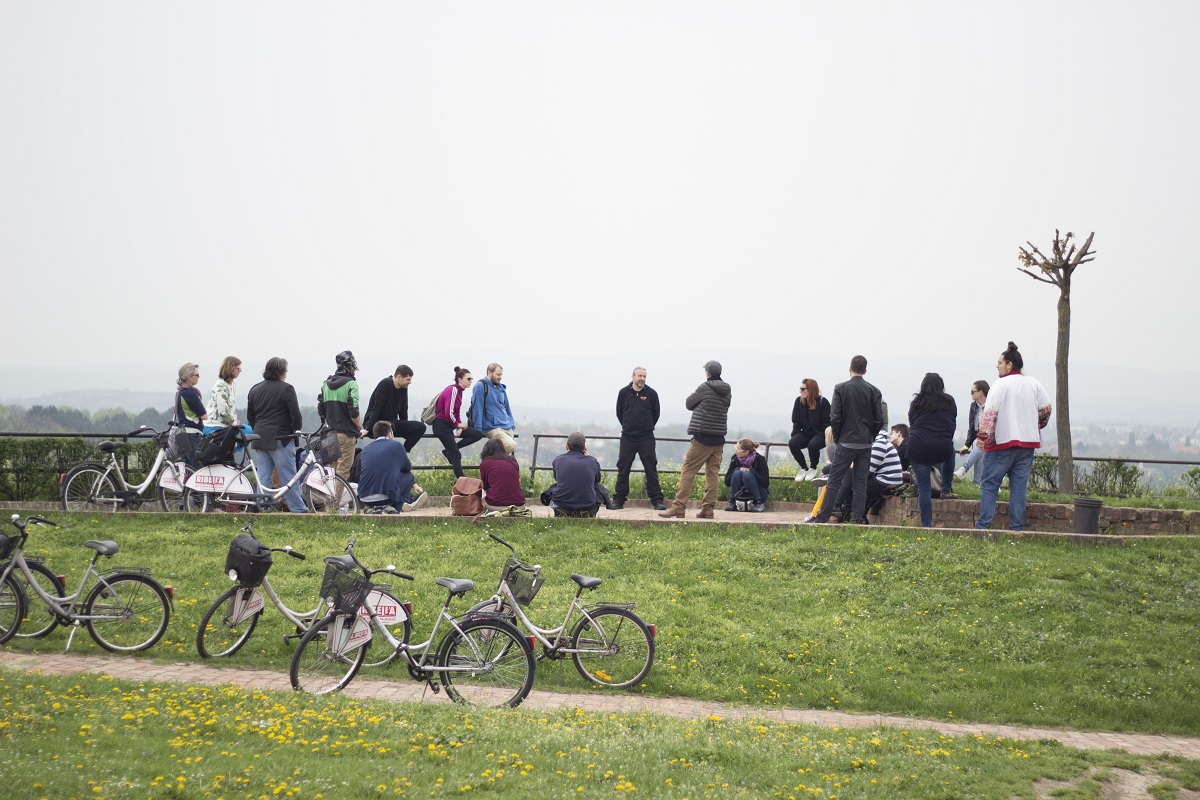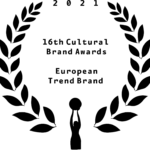In the period from 14 to 22 April, Novi Sad hosted the second phase of the ‘Lab for European Project Making’ educational programme. The education was led by European managers and consultants who addressed the audience of Novi Sad at Divan on Wednesday, 18 April 2018. The focus of the workshops and dialogues was on different management in culture.
Presenting examples of good practice in Serbia and abroad, new methods and ways of managing cultural projects, are the topic of the ‘Lab for European Project Making’ educational programme. Through this project, the ‘Novi Sad 2021’ Foundation trains eight managers from Novi Sad, willing to approach cultural management in new and different ways, to deal with modern challenges and trends.
In order to create chances for all professionals and stakeholders in culture and creative industries to hear and learn something new, we used the presence of good lecturers and mentors of the LAB and organised a Divan which dealt with the topic of different management in culture. Birgitta Persson, Goran Tomka and Milan Vračar had a discussion with the attendees of the Divan and shared, each from their own point of view, their experience, guidelines and suggestions. The interests of people from Novi Sad was big, and the discussion interesting and productive. The ‘Novi Sad 2021’ Foundation will try to raise capacities for management of cultural projects and spaces in the following period. The next opportunity is the ‘Neutralno’ International Conference, which will be held in Studio M in Novi Sad on 9 and 10 May.
We would like to remind that the first part of the EULab project was organised in Timișoara in November 2017, while the host of the third meeting will be Rijeka, in late 2018. The total of 27 participants from European Capitals of Culture Rijeka, Timișoara and Novi Sad, as well as two guests from Germany and Hungary, had a chance to see all important sights and interesting locations where cultural events can be organised. They had a chance to take a walk on Fruška Gora Mountain, ride bikes from Štrand to the Fortress, and see all locations where the EXIT festival is organised.
Here are some of the impressions of the lecturers:
 Birgitta Persson, consultant and director of TEH network of independent cultural centres from Lund in Sweden, says that the idea of bringing together cultural managers from 3 European Capitals of Culture and working on their capacities is possibly one of the most important models of work, having in mid long-term effects and results: ‘Networking, sharing experience, meeting and creating a network of cultural managers, in a few years can contribute to the understanding of context of different European cities’. Birgitta stresses that this is a chance to revise their practices through interaction and training, and learn: ‘I honestly believe that the effects of the EULab project, after participants return to their daily routines, will result in experience, inspiration and knowledge, as well as the fact that they are part of a bigger story now – network of managers who are here for each other’.
Birgitta Persson, consultant and director of TEH network of independent cultural centres from Lund in Sweden, says that the idea of bringing together cultural managers from 3 European Capitals of Culture and working on their capacities is possibly one of the most important models of work, having in mid long-term effects and results: ‘Networking, sharing experience, meeting and creating a network of cultural managers, in a few years can contribute to the understanding of context of different European cities’. Birgitta stresses that this is a chance to revise their practices through interaction and training, and learn: ‘I honestly believe that the effects of the EULab project, after participants return to their daily routines, will result in experience, inspiration and knowledge, as well as the fact that they are part of a bigger story now – network of managers who are here for each other’.
 Nicolas Champion, director of the French company Playtime (technical management for festivals, exhibitions, artistic project in public spaces) has 25 years of experience in cultural sector. ‘I think that it is really good that you started working on networking cultural managers three years in advance, which is a good model to timely create contacts and initiate joint topics, and it can be model of work for other European Capitals of Culture’, says Nicolas. He adds: ‘Novi Sad has everything which is needed to become an excellent capital of culture: the city is fantastic, you have a good infrastructure, plenty of historical buildings, cultural centres. The only thing that remains is to focus on resources you have. Novi Sad is an ideal playground for artistic projects.’
Nicolas Champion, director of the French company Playtime (technical management for festivals, exhibitions, artistic project in public spaces) has 25 years of experience in cultural sector. ‘I think that it is really good that you started working on networking cultural managers three years in advance, which is a good model to timely create contacts and initiate joint topics, and it can be model of work for other European Capitals of Culture’, says Nicolas. He adds: ‘Novi Sad has everything which is needed to become an excellent capital of culture: the city is fantastic, you have a good infrastructure, plenty of historical buildings, cultural centres. The only thing that remains is to focus on resources you have. Novi Sad is an ideal playground for artistic projects.’



